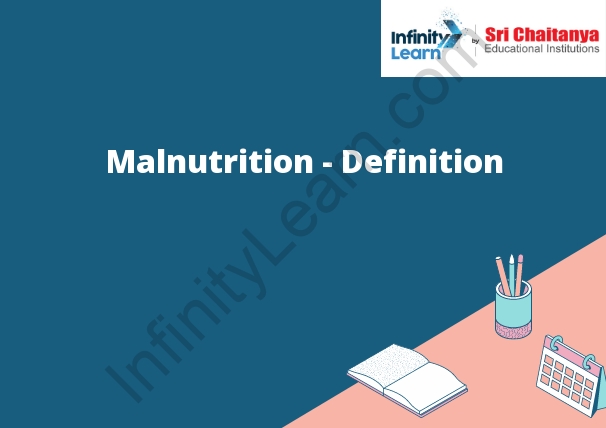Table of Contents
What is Malnutrition?
Malnutrition – Definition: Malnutrition is a condition that results from eating a diet that does not provide the body with enough nutrients. Malnutrition can lead to a wide variety of health problems, including stunted growth, anemia, and weakened immunity.

List of Topics covered in the Chapter – Malnutrition
- Definition of Malnutrition
- Types of Malnutrition
- Causes of Malnutrition
- Effects of Malnutrition
- Prevention and Treatment of Malnutrition
How can we Define Malnutrition? What are the Characteristics of a Malnourished Person?
Malnutrition is a deficiency in one or more nutrients. It can be caused by not getting enough of a nutrient, losing too much of a nutrient, or not being able to absorb a nutrient. Characteristics of a malnourished person include being underweight, having a low muscle mass, being tired, having a poor appetite, and having a weakened immune system.
Signs and Symptoms of Malnutrition
Malnutrition is a condition that results when the body does not get the right amount of nutrients. Malnutrition can be caused by a lack of food, an inability to absorb nutrients, or an excessive loss of nutrients.
Signs and symptoms of malnutrition include:
- Weakness
- Fatigue
- Weight loss
- Loss of muscle mass
- Impaired immune function
- Anemia
- Dizziness
- Irritability
- Poor memory
- Confusion
- Swollen ankles or feet
- Pale skin
- Bruising easily
- Cognitive impairment
There may be One or More of the following in Children:
- Delayed language development
- Delayed motor skills
- Poor social skills
- Inability to focus
Each of these issues can be indicative of a developmental delay. Developmental delays can impact a child’s ability to learn and interact with others, and often require special assistance in order to overcome the obstacle. If you suspect your child may be experiencing a developmental delay, it is important to consult with a healthcare professional for an evaluation.
Types of Malnutrition
There are three main types of malnutrition:
- Undernutrition, which is a lack of nutrients in the body. This can be caused by not eating enough food, or by eating food that does not provide the right nutrients.
- Overnutrition, which is when someone consumes too many calories, often from unhealthy foods. This can lead to obesity and other health problems.
- Micronutrient malnutrition, which is a lack of essential vitamins and minerals. This can be caused by not eating enough fruits and vegetables, or by not getting enough of these nutrients from the food you eat.
Causes of Malnutrition
There are many different causes of malnutrition. Some of the most common causes include a lack of food, a lack of nutrients in the food that is available, and illnesses that prevent the body from absorbing nutrients properly. poverty, war, and natural disasters can also lead to malnutrition.
Treatment of Malnutrition
There are a variety of ways to treat malnutrition. Treatment depends on the severity of the malnutrition and the underlying cause. Treatment may include:
- oral or intravenous fluids
- nutritional supplements
- medications to treat the underlying cause
- hospitalization
- There is no one-size-fits-all approach to treating malnutrition. Treatment plans must be tailored to the individual.
Prevention of Malnutrition
There are many ways to prevent malnutrition. Some include:
- Eating a balanced and healthy diet
- Getting enough exercise
- Drinking plenty of fluids
- Eating foods that are high in nutrients
- avoiding processed foods
- avoiding sugary drinks
Why should Students join Infinity Learn?
There are many reasons why students should join Infinity Learn. Some of the benefits include:
1. Learning tools and resources that are both engaging and effective.
2. A personalized learning experience that is tailored to each student’s needs.
3. The ability to learn at your own pace, and access course content whenever and wherever you want.
4. Support and guidance from experienced educators who are passionate about learning.
5. The opportunity to connect with other students and collaborate on projects and discussions.
6. A safe and secure learning environment that is monitored and moderated by professionals.








